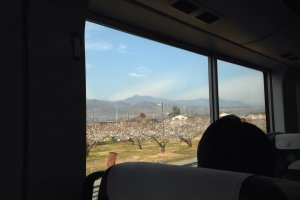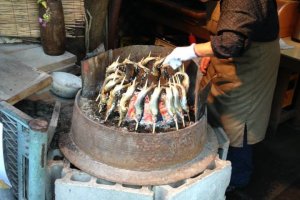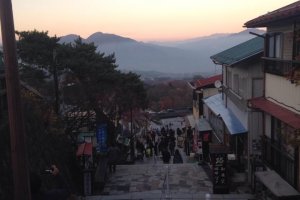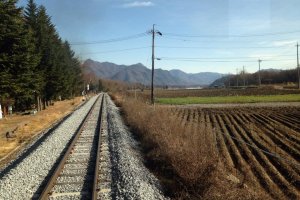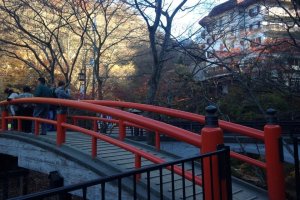Update: the JR Kanto Area Pass has been replaced by the JR Tokyo Wide Pass.
The Japan Rail Pass is a terrific value for short-term visitors to Japan. Unfortunately foreigners living in Japan are unable to take advantage of this great opportunity. Luckily, there is the JR Kanto Area Pass. At ¥8,300, this pass allows foreign passport holders three full days of unlimited travel on JR local, limited express, and Shinkansen trains through the Kanto Area. Last autumn, a few friends and I took advantage of this pass and a three day weekend to traverse some mountains, see the colorful foliage, and check out the top hot spring spa villages in Gunma Prefecture.
We began our trip by purchasing the pass at Ueno station, but you may purchase this pass at a variety of locations, including Narita airport. Please visit the JR website for more information about the points of sale. Most agents do not open their offices until 10am but if you plan ahead, you can purchase and reserve this pass for a specific date in the future.
After purchasing the pass we took advantage of the (Free!) Reserved Seating on the Shinkansen heading toward Takasaki, Gunma. Takasaki is famous for its Shorinzan Daruma Temple which was established centuries ago and recognized as the place where the daruma doll first became a good luck charm. This temple holds a large festival during the first week of January during which people burn last year's daruma dolls and make wishes with new ones. It also is home to an impressive Kannon (Buddha Statue) which is worth checking out.
After lunch we decided to visit Ikaho Town for some peace and relaxation. We took the Akagi Rapid line to Shibukawa Station where we transferred to a local bus (an extra ¥570) towards Ikaho Bus Terminal. Ikaho Town is a great little onsen village built into the side of a mountain known for its iron-rich waters and with terrific views. The last bus back to the train station was a bit early (around 20:00) so be sure to check the bus timetable when you arrive so you can plan accordingly.
We weren't finished exploring Gunma's hot springs yet, so the next day we decided to visit Gunma's more popular Kusatsu Onsen. We started with the first train of the day on the Agatsuma Line and disembarked at Naganohara-Kusatsuguchi Station. From there we transferred to the bus to Kusatsu Hot Springs Bus Terminal (an extra ¥690). There is a very helpful bus schedule (in English) on the Kasatsu Onsen website. The Kusatsu Onsen village is a top tourist destination in Gunma for a good reason. The high temperatures of its sulfuric hot spring waters combined with shops giving out free fresh baked manju sweets and green tea make it hard to leave the town.
To cap off the restful three day weekend we decided to indulge in one last laid back train ride on the Koumi Line. To get there we took a short Shinkansen ride to Saku-Daira Station in Nagano prefecture. From there, all that waited us was easy coasting and beautiful views. The train ride ended after approximately two and half hours at Kobuchizawa Station in Yamanashi Prefecture. From there you can choose to either explore the local town or transfer to the Chuo Limited Express train bound for Tokyo.
Transportation costs for this itinerary would have been around ¥18,000, however by purchasing this pass we were able to save over ¥9,000! Combining this with our accommodation (¥4000 a night at a Takasaki business hotel), meals, activities, and additional bus fares, this itinerary totaled to about ¥30,000 or ¥10,000 a day.


